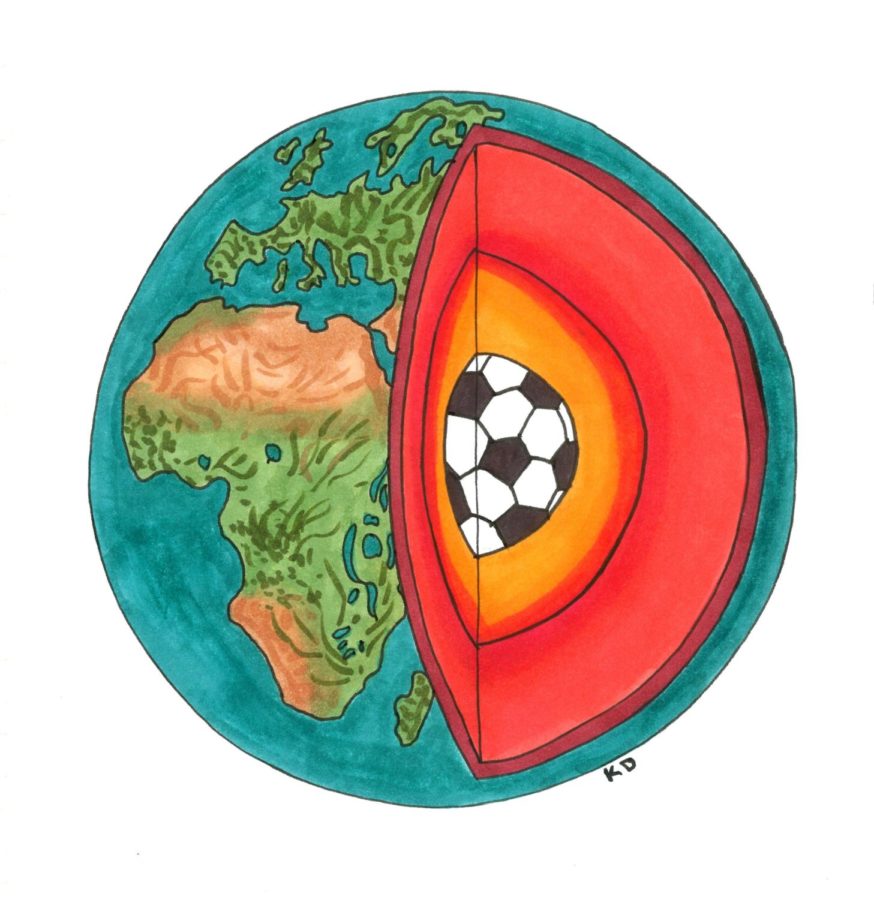It’s no secret that the lack of a football stadium in UChicago’s Hyde Park campus is a unique trait among universities of similar ranking, but it’s also reflected by the general reputation of anti-athleticism in the student body. UChicago has a worse Niche “athletics” grade (a “C”) than all five universities ranking above it on U.S. News’s list of best colleges—by more than a full letter grade. At UChicago, we have a Core Curriculum aimed at broadening insights and exploring multiple disciplines, but this pursuit of an expanded skill set should not be limited to academics. The College should include team sports as a Core requirement.
There is no more efficient way to unite a group of peers than to put them through a competition in which sweat, tears, loss, and victory are shared. At UChicago, for both naive first-years and seasoned fourth-years, it’s concerningly easy to fall into a routine of waking up, going to class, and going back to the dorm (rinse, repeat, etc.). Requiring sports—giving every student a team that shares in the successes and losses of competition—provides a clear opportunity to shake off a mundane and solitary routine. Once a peer, now a teammate. Once an academic rival, now an athletic ally. Once a stranger, now someone you see every week, whom you support after failure and cheer on after success. Together, through a team, even the most social of students can expand their circles. Maybe I sound naive in the claim that mandating sports for everyone combats the troubles of a few, but the social benefits for first-years in particular is considerable. Getting acclimated to a new school starts only through connections, and there cannot be a surplus of such opportunities.
Let’s move to the issue of general athleticism. The University confirms that roughly 500 students participate in varsity athletics and claims that 1,100 people participate in club sports. With roughly 7,000 undergraduates, even if we presume that the 1,100 “people” all reference undergraduates and that there is no overlap between varsity and club athletes, fewer than a quarter of undergraduate students would still be on such teams. The risk of physical inactivity is present nationwide, but the College in particular has a duty to its students to mitigate it—particularly in the context of the University’s less-than-ideal athletic rating. Suffice it to say, we have some ground to make up. Perhaps some students prefer the fun and social atmosphere of intramural sports. However, the level of intensity necessary to improve one’s athleticism is absent from this type of play, as is the rigor of a consistent, compulsory schedule—some of the key benefits of sports.
Harvard Medical School also reports that physical activity reduces the risk of other health complications and improves one’s mood and mental health. The benefits are clear, but the manifestation is lacking. Not everyone has the adequate willpower and mental fortitude to institute their own workout regimen. Those who won’t hit the gym on their own. Those who won’t go for a run on their own. Those who won’t try a new sport on their own. So let’s do it for them. Sports aren’t just about meeting other people. They’re also about discovering your limits and improving your mindset regarding competition. They’re about making your body a toolkit as useful as your mind. These are benefits that are absent for many students who elect out of team sports. Let’s be honest: it’s hard to make a claim about the health and wellness of UChicago students—when it comes to overall strength and conditioning—without speculation or a decent amount of anecdotal evidence. Nevertheless, perhaps the stereotypes associated with our institution stem from some level of truth. A chiefly academic school poses no threat to a student body. An unfit one does.
So how do we mandate these ideas? The purpose of the Core Curriculum is to provide “all students with a challenging, common academic foundation before they begin courses specific to their fields of study.” But attributes like social abilities, physical strength, and team spirit are all critical to a student’s well-roundedness that cannot be confined to the classroom. Workplace environments almost always emphasize the importance of social competency and a team mindset, and these skills can best be learned on the field or court, through open and hasty communication and interaction with teammates. If a student places their focus solely on schoolwork, is it truly fair to them (and to the world that this generation of students will soon lead) to deprive them of these opportunities and skills? The Core challenges us. It makes physics majors take history. It makes math majors take social science courses. Though some would argue that this is impractical, the skill set found within different studies produces a resolve that would otherwise go undiscovered. In a similar fashion, sports equip you with a skill set that no other activity can. So, let’s not stop at academics. For students otherwise uninterested in team sports, there is an overwhelming, untapped source of prowess that could enhance everything from agility to motivation to conversation in one’s everyday life.
So to those students who believe that the temporary fatigue of physical exertion overpowers the everlasting development of mind and body that results—I promise you, this is not the case. So, let’s stay social, let’s stay competitive, and let’s stay challenged. We have a reputation to outgrow.
Ryan Sanghavi is a first-year in the College.








